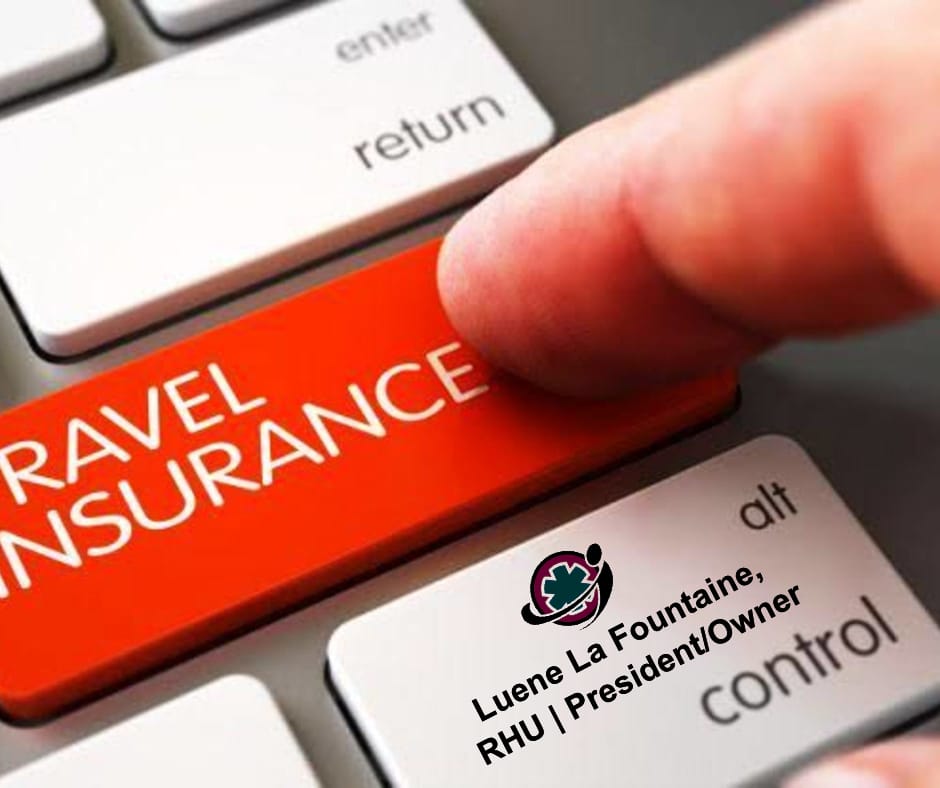The snow is flying and temperatures are dropping. So you don’t need a calendar to tell you it’s time to head south. Well, if that’s what you’re planning—be assured that you’re going have plenty of company if 2019 travel patterns to date are any guide. Though some of Canada’s TV networks were questioning the dearth of snowbird migrations just a few months ago, the truth is that southbound leisure travel—by all age groups, including snowbirds—is healthy and growing. According to the Conference Board of Canada (CBoC), which tracks inbound and outbound migrations using data from Statistics Canada and its own predictive models, during the first eight months of 2019 Canadians made 14.2 million overnight trips to the US (that means at least one overnight stay—but doesn’t count day trips), 2 per cent more than the comparable period of 2018.
To put this in broader perspective, Canadians made 17.9 million outbound trips to all destinations between January through August 2019 (5.6 per cent more to Europe; 3.9 per cent more to the Caribbean, Mexico and Central America; and approximately the same number in 2019 as 2018 to Asia, Oceania, and the South Pacific—around 2.3 million).
The total number of outbound trips for the first eight-month period is higher in 2019 than at any time since 2015, and the numbers travelling to the US from January through August are the highest ever—somewhat paradoxical considering the so-called “Trump effect.”
Travel insurance…… what you need to know:
Purchasing travel insurance is a smart choice if you want to protect your trip against an array of possible events such as: lost luggage, natural disasters, missed flights, personal injury or sickness abroad, tour operators going bankrupt, or even acts of terrorism. But with so many types of travel insurance, lots of fine print, and complicated insider lingo to decipher, it can feel impossible to determine which kind of travel insurance is right for you.
With the right resources, however, it’s possible to pick a trip insurance policy you’ll be confident traveling with and paying for. Our guide to travel insurance covers:
✓Who needs travel insurance
✓The basic types of travel insurance
✓The most common policy needs to consider
✓Little-known trip insurance technicalities you need to know in case they affect you
Who Needs Travel Insurance?
There are several different types of travel insurance policies available, ranging from trip cancellation insurance to emergency medical evacuation, all of which vary widely in what their coverage includes and how much it costs. Make sure you know exactly what your policy will and will not cover before you purchase anything, and always buy your insurance from a reputable company, our trusted partner TuGo.
Is Travel Insurance a Waste of Money? For some people and certain trips, travel insurance is a virtual necessity; for others, it’s probably not worth the money. The question boils down to a matter of risk, and the best way to assess that risk is by answering four basic questions.
Are you willing to risk the loss of deposits or prepayments if your trip is cancelled for any reason?
Are you willing to pay out of pocket if you need to return home early from your trip for any reason?
Are you willing to foot the bill for any out-of-pocket medical expenses, ranging from basic emergency care to emergency medical evacuation home, if you encounter any sickness or injury on your trip?
Do you have a credit card or general insurance that includes bundled travel insurance?
If you answered “no” to any of the first three as well as the final question, you would probably be wise to invest in a travel insurance policy that includes TCI (trip cancellation or interruption) and/or travel health insurance.
If you need to buy trip insurance for an upcoming vacation, first look at the insurance policies you already have to see what they will cover. Some health insurance policies cover medical emergencies overseas, while others will not. Many credit cards and homeowner’s policies cover baggage loss. Also, many credit card companies (particularly gold cards) offer their members international medical assistance, and accidental death and dismemberment insurance if the user simply charges their airline tickets on their credit card.
The Basic Types of Travel Insurance
Following is a brief description of the different types of travel insurance options available. Note that every policy is a little bit different, so be sure to read the fine print carefully before purchasing
Trip Cancellation/Interruption Insurance
Trip cancellation/interruption insurance covers you if unforeseen events cause you to cancel or interrupt your trip. In general, this coverage is meant for illness, injury, or death suffered by the insured or a member of the insured’s immediate family. Some policies also cover cancellation in the event of illness, injury, or death to the insured’s travel companion.
Medical/Medevac Insurance
Medical insurance encompasses several types of coverage. Emergency medical evacuation insurance covers the cost of transportation if a qualified physician determines that you must be evacuated for treatment to the nearest medical facility or to your home country (if it’s warranted), due to injury or sickness. This insurance is highly recommended for cruise passengers and travelers visiting remote areas or developing countries.
Baggage Loss/Delay
Baggage loss and delay coverage protects you in the event that your luggage is lost, delayed, or stolen. This often includes a cash payment if your bags are delayed for more than 12 hours after you arrive at your destination.
Flight Delay/Cancellation
Flight delay or cancellation insurance (sometimes called “travel delay”) typically pays for accommodations, meals, and new travel arrangements once you’ve been delayed a certain amount of time (often six to 12 hours—read your policy carefully).
Travel Document Protection
Travel document protection can kicks in to help you replace a passport or other travel documents when they’re lost or stolen.
Other common travel insurance coverage needs include:
*Missed connections
*General weather problems, not just winter or hurricane coverage
*Cruise insurance
The Most Common Insurance Coverage Needs
The most common incidents that travelers hope are covered on their travel insurance policy are weather-related delays and cancellations, including both winter weather conditions and hurricane-season natural disasters.
Winter weather issues typically covered by travel insurance include:
Missing your flight due to weather problems that prevent you from physically getting to the airport on time
Flights being canceled because of winter weather conditions preventing take-off
Flights to or from your destination being delayed because of winter conditions either in your destination or at home, which may incur lost deposits and/or extra hotel stays
Insurance Coverage Technicalities You Need to Know
Travelers with pre-existing medical conditions will need to be more careful about the travel insurance or healthcare coverage they purchase. Pre-existing medical conditions are often defined by insurance companies as: “Any injury, sickness or condition for which medical advice, diagnosis, care or treatment was recommended or received within the 180-day period ending on your date of departure. Conditions are not considered pre-existing if the condition for which prescribed drugs or medicine is taken remains controlled without any change in the required prescription.” Meaning: The insurance may only cover health problems that are proved to be unforeseen.
Be sure to read all terms and conditions carefully to be sure the policy provides the types of coverage you’re looking for and is valid in the countries you’ll be visiting. And don’t be afraid to ask Health Risk Services to help you choose a policy.
Luene La Fountaine, RHU | President/Owner|
phone: 403-236-9430|














